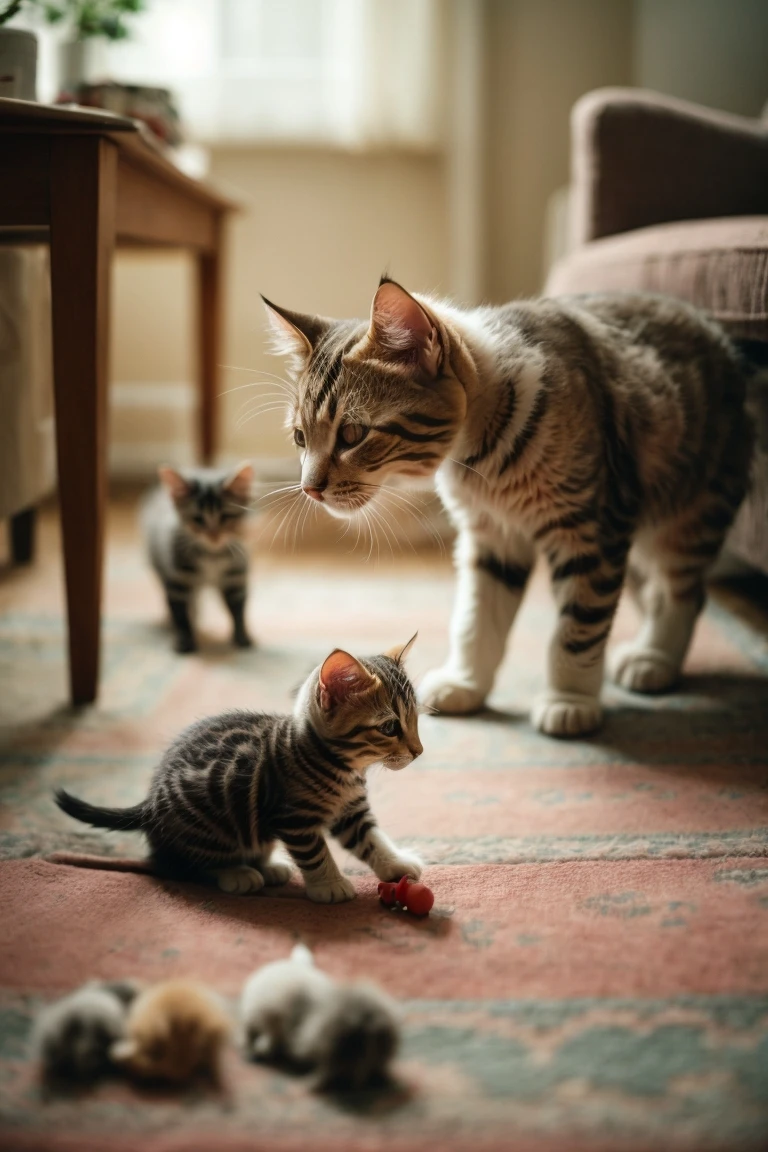Socializing Newborn Kittens: A Step-by-Step Guide

Socialization during a kitten's first weeks of life is vital for their development into friendly, well-adjusted cats. While the mother cat plays the primary role, caretakers can also use a step-by-step process to supplement early positive experiences. Handled properly, human interaction enriches socialization foundations.
Why Early Socialization Matters
A kitten's first 2 months of life offer a prime window for social learning that shapes future behavior and temperament.
Benefits of positive early socialization:
- Increased ability to bond with people and other animals
- Less fear and stress in new situations
- Reduced likelihood of behavior issues like aggression
- Better tolerance of handling for grooming, medical care
- More easily rehomed due to friendliness
With patience and care not to overwhelm, you can provide valuable supplementary socialization.
Socialization Steps: Birth to 2 Weeks
In their first weeks of life, kittens are still developing basic senses and motor skills. Socialization involves minimal handling:
Allow Mom Cat's Undisturbed Care
- Let the mother cat focus on nursing, grooming, and caring for kittens without disruptions.
Provide Brief Warm Handling
- Pet kittens gently while nursing with mom to associate human scent/touch with comfort.
- Handle each kitten for 1-2 minutes max per session, keeping warm.
Introduce Soft Sounds
- Provide ambient sounds like a playing radio to acclimate them to household noise.
The queen provides the primary socialization via nursing and group interactions. Your role is simply laying positive groundwork.
Socialization Steps: 3 Weeks to 8 Weeks
As their senses develop, kittens are ready for expanded positive experiences:
Increase Handling
- Handle each kitten individually 2-3 times per day for 3-5 minutes.
- Gently inspect paws, ears, mouth - get them accustomed to physical handling.
- Offer treats during and after for pleasant associations.
Introduce New Objects
- Let kittens explore safe items like fuzzy toys, cardboard boxes, paper sacks.
- Supervise to ensure no chewing hazards or harm. Rotate novel items to build confidence.
Expand Environment
- Move mom and kittens to a larger safe room with new textures, obstacles, toys.
- Closely supervise explorations, provide treats and play. Returning to mom provides security.
Introduce Other Humans
- Have family members and friends visit to cuddle and play with kittens under supervision.
- Ensure contact is gentle and positive. Limit handling to avoid overwhelming them.
At this stage kittens are very receptive to learning responses to new people, places and things. Keep sessions relaxed, rewarding and never forced.
Troubleshooting Common Socialization Issues
When socializing kittens, watch for these potential issues:
- Overstimulation - Kittens appearing fearful, withdrawing, or hiding after handling/introductions. Go slower with exposures and provide breaks.
- Aggression - Hissing, swatting or biting during handling. Redirect to appropriate toys instead. End interaction if aggression continues.
- Poor bite inhibition- Discourage biting hands or ankles with a stern "No!" Provide acceptable chew toys instead.
- Appearing fearful of people/environments - Ensure all interactions are patient, positive and rewarding. Never force contact. Let timid kittens approach voluntarily.
- Lack of interest in interaction - Tempt with special treats and catnip. Try different types of toys to find their motivation. Keep handling brief if they lose interest quickly.
Adjust your approach based on each kitten's developing personality for the best response.
Continuing Socialization After Adoption
At 8-12 weeks when adopted, kittens should have a strong socialization foundation. Caretakers can continue building confidence and friendliness:
- Expand to new areas of the home gradually
- Introduce to new pets and people positively
- Provide daily playtime with interactive wand toys or balls
- Teach them their name and come when called
- Take on car rides and public outings in carriers after vaccinations
- Reward desired behaviors like using scratching posts and litterbox
With the right early start and ongoing positive exposures, kittens develop into well-rounded cat citizens ready to enrich their new families!